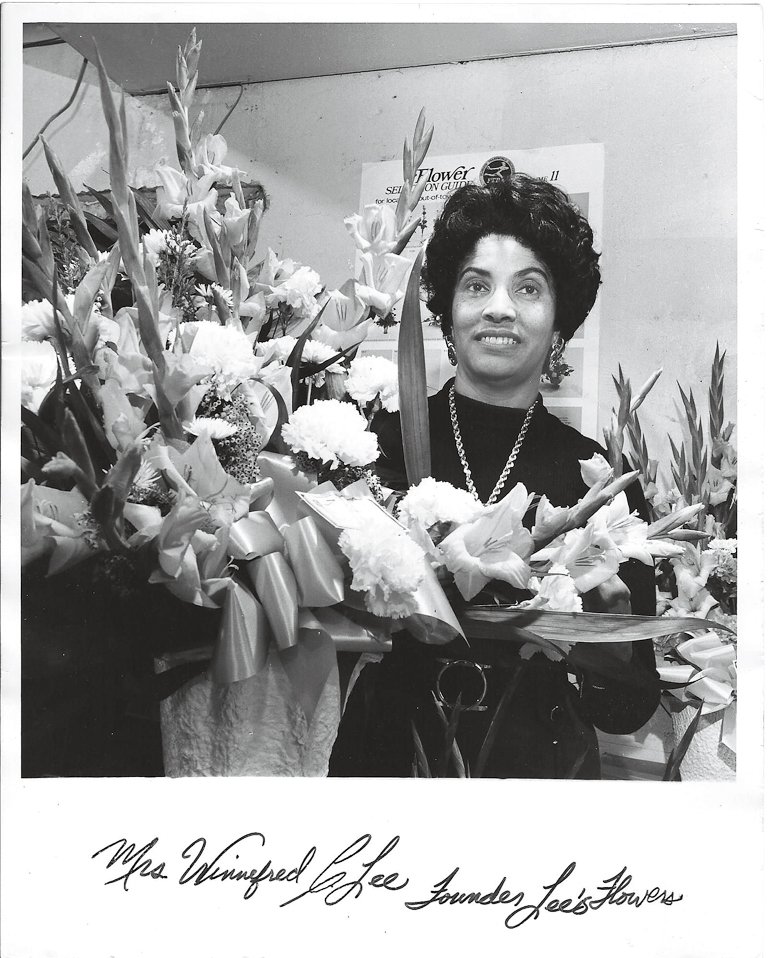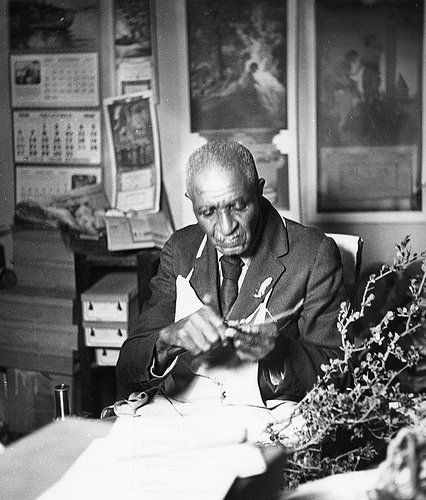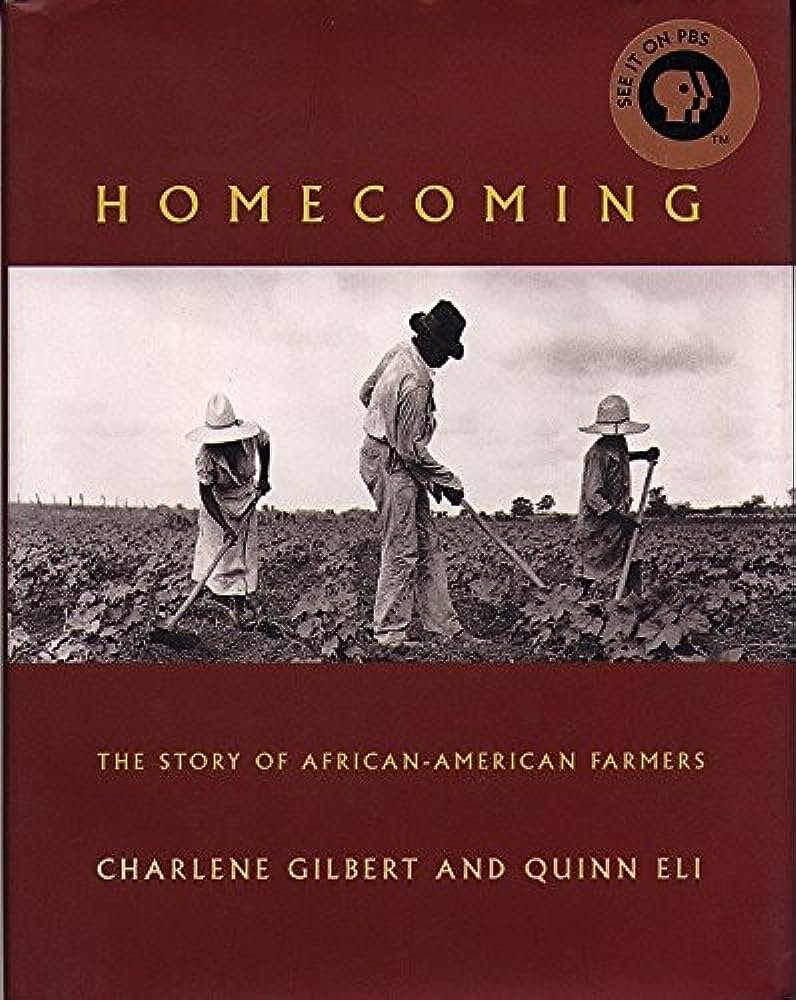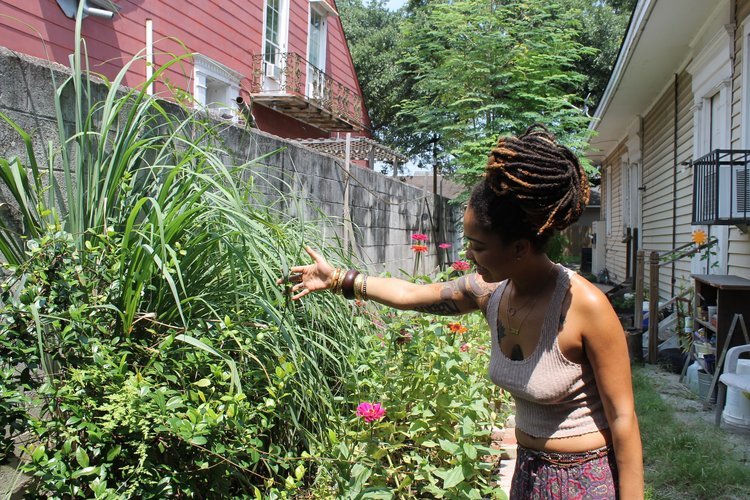Black History in Nature: Vol. 3
Like many Black people we celebrate Black history all day, every day. But for the month of February, we’re sharing 28 histories of Black innovation and creativity in agriculture, gardening, and beyond on our Instagram.
Image from The Washingtonian article “The Forgotten History of U Street”.
February 15: Lee’s Flowers and Card Shop - Black Florists
From the 1920s to the 1950s Washington DC’s U Street corridor was known as Black Broadway. It was the hub of all commercial, intellectual, and cultural life for Black people in DC. Black businesses like Lee’s Flower and Card Shop thrived on the street. Co-owner Winifred Lee (pictured) designed flowers for the White House. Almost every Saturday during football season parades would travel up and down the street. Sometimes staying up all night putting the bouquets together, the shop provided bouquets for the queens.
February 16 + 17: George Washington Carver
An inventor, agricultural scientist, and educator George Washington Carver studied soil’s biological regeneration through the nitrogen cycle and crop rotation. 🥜His research focused on southern soil stripped of nitrogen by cotton plants. Carver developed a crop rotation method by alternating the cotton crops with legumes like peanuts that fix nitrogen levels. By increasing the soil’s productive capacity, farmers were able to grow and sell additional produce helping diversify the market.
February 18: Alexander P. Ashbourne
Shoutout to Mcnally for this one. McNally + Nathaniel were the first people we interviewed for blackpeoplewithplants.com. Back when we really didn’t know what we were doing (sometimes still don’t). They are both lovingly open and welcoming, really cute, and stellar gardeners. There is little known about inventor Alexander, he was born into slavery circa 1820 in Philadelphia. In the 1880s he moved to Oakland to run his own grocery store. He is most known for inventing patents to make coconut oil accessible for domestic use. His revolutionary patents to refine, treat, and prepare coconut oil are still used today.
February 19: Carolyn Finney
Carolyn Finney is a storyteller, professor, and cultural geographer. As quoted on her website: “All of my work grows out of a commitment to question conventional wisdom and reconsider long-held assumptions regarding the production, representation, and dissemination of knowledge about people, places, and ideas." In her book “Black Faces, White Spaces”, Carolyn’s thought-provoking study examines the question - Why are African Americans so underrepresented when it comes to interest in nature, outdoor recreation, and environmentalism? Finney argues the legacies of slavery, Jim Crow, and racial violence have shaped cultural understandings of the great outdoors and determined who should and can have access to natural spaces. We highly recommend reading this book. Check it out from your local library.
February 20: Charlene Gilbert
In 1920 there were nearly one million Black farmers in America; in 1999 there were fewer than 18,000, now less than 2% of farmers are Black. While searching for Black agriculture history in our library’s catalog we were blessed with discovering Charlene Gilbert’s “Homecoming: The Story of African American Farmers”. Scholar and documentarian Charlene illustrates her family’s history in Georgia and that of 20th century Southern Black farmers in this documentary and accompanying book. Our history with the land is a hauntingly bittersweet history filled with tragedy, survival, and hope. Charlene’s work explores the drastic decline of Black farming due to racism, violence, discrimination, and redlining - which is still happening today!! Another recommended reading + viewing. If you have a library card you can view the documentary on Kanopy.
February 21: Plant Medicine
In our interview with @gypsithemuse, Gypsi discusses how plants can transform Black lives, particularly through plant-based medicine + healing. Read the full interview here. The practice of using herbal remedies and botanical medicines was brought over by enslaved Africans during the Transatlantic Slave Trade. Roots, herbs, flowers, and spices were used to treat physical and spiritual illnesses + ailments. These remedies consisting of teas, tinctures, and poultices were shared orally from generation to generation. The knowledge of how certain plants and roots stimulated the immune system and cured common ailments aided in surviving the Underground Railroad. These healing traditions are still practiced by Black people today, like Gypsi through @gypsi_jars.






